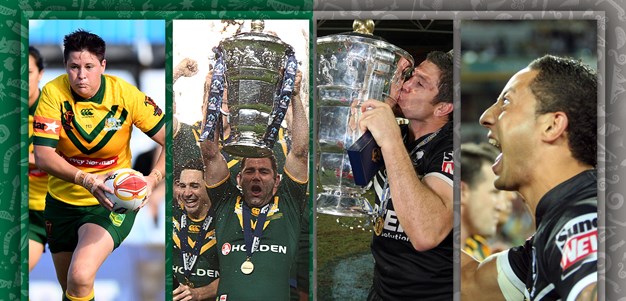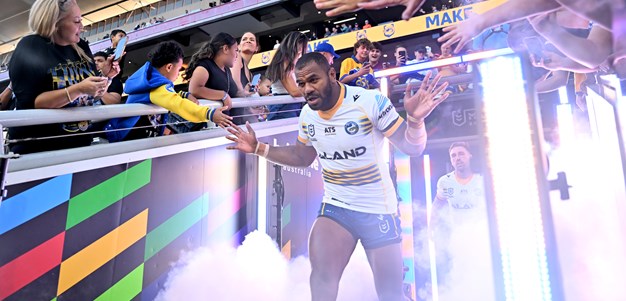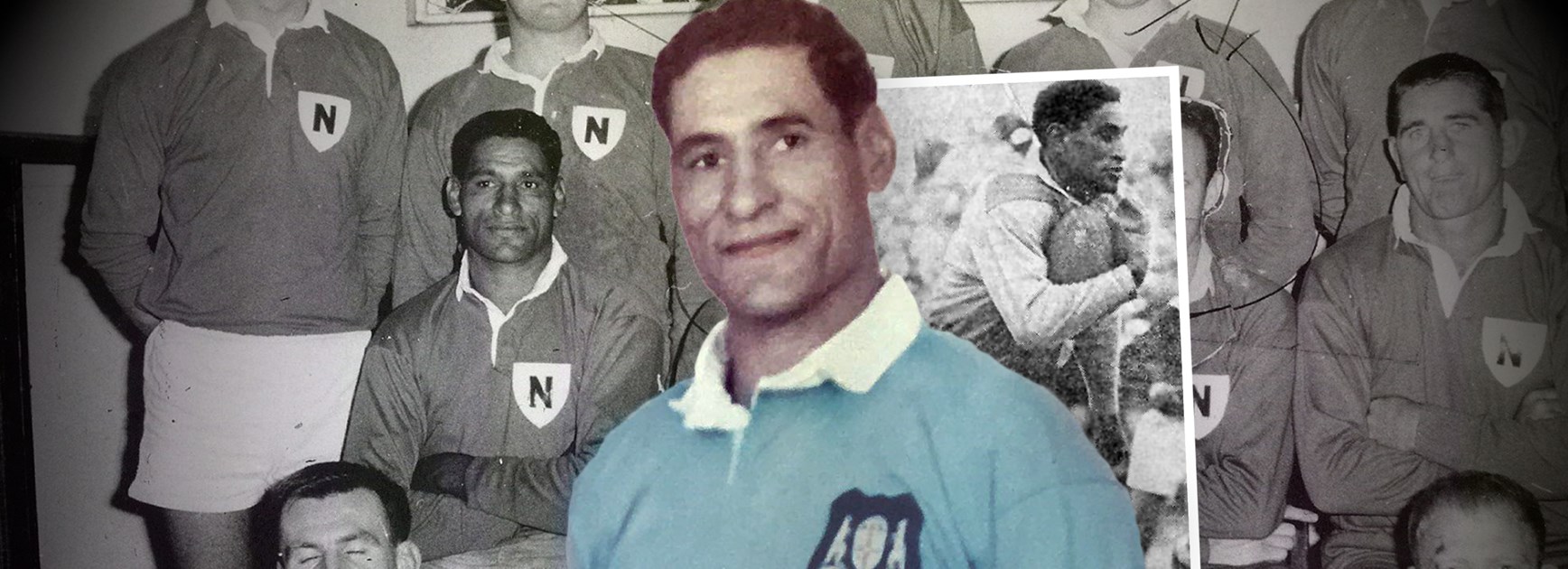
Arthur Beetson is widely acknowledged as the inspiration for many of the Indigenous players who now comprise 11 per cent of all NRL talent, but who was Big Artie’s inspiration?
It’s a question that was raised during an interview with the game’s oldest living Indigenous player, Bruce Olive, who turns 90 later this month.
“Arthur Beetson broke the mould but I always think ‘who was Arthur looking at in the early 1960s?’,” says Olive’s son Darren, who represented City Under 18s in 1984 and played for the Illawarra Steelers.
“Surely he must have been looking at someone like my dad who was leading the way through what he was doing. Arthur must have seen dad somewhere.”
Bruce Olive is regarded as one of the best front-rowers of his generation and many believe the only reason he didn't play for Australia was because of racism.
Olive, who turns 90 later this month, represented NSW on eight occasions from 1958 to 1962 after moving from Casino to Wollongong in the twilight of his career and he played four seasons with Newtown from 1964 but never received an Australian jersey.
The first Indigenous player chosen for Australia was Lionel Morgan, who played three Tests against France in 1960.
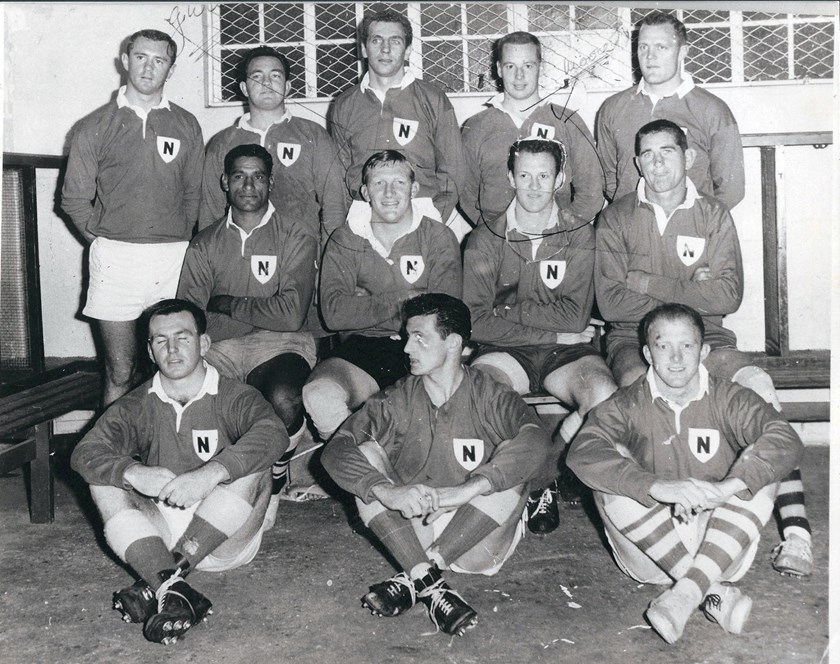
In 1973, Beetson became the first Aboriginal to captain an Australian team in any major sport.
With the game’s seventh Immortal passing away in 2011, it is impossible to ask what impact Olive had on him but his family confirmed that he had been aware of the Indigenous pioneer before moving from Queensland to Sydney as a 21-year-old in 1966.
“I spoke to my uncle [Barry “Pedro” Beetson] and he said they knew about Bruce Olive, mainly when he played for Newtown,” Beetson’s son Brad said. “They used to listen to the games on the radio as they did not get TV coverage in Roma until 1974.”
Olive, who enjoyed last weekend’s Indigenous Round, struggled to recall any other Indigenous players in the Premiership when he joined Newtown in 1964 and said he hoped he had helped inspire others.
“That’s how things were then,” he said. “I can’t place any in any of the other teams either. I played against Arthur but he came after me.
“We might have opened the gate a little bit, we might have opened the door, and other young people have seen what they can achieve.
“I think it might have inspired some young players because even now I couldn’t rob a bank around the place because everyone knows me.”
'He was a great character': Vlandys
A portrait photo of Olive in his NSW jersey hung in the foyer of Western Suburbs Leagues Club at Unanderra until it underwent renovations, along with others of the likes of Royce Ayliffe, John Dorahy, Bob Fulton, Brian Hetherington, Garry Jack, Graham Lye, Alan Maddalena and David Waite.
ARLC chairman Peter V’landys grew up in Wollongong and was a Red Devils junior.
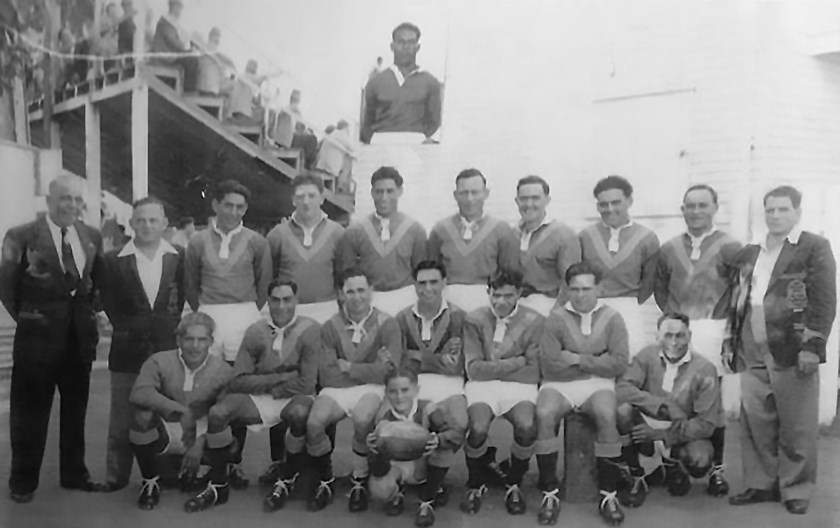
“I was certainly aware of Bruce,” V’landys said. “I remember him as a hard worker. He was a great character.”
Paul Broughton, who has been involved in the game as a player, coach or administrator since 1952, said: “Bruce Olive was the gentleman of the front-rowers. He was a pretty big man too, for that era”.
Olive also features in a painting of the Illawarra Team of the Century on display at WIN Stadium, along with Fulton and fellow Immortal Graeme Langlands.
“He was the only player who never played for Australia to make the Illawarra Team of the Century,” Steelers founder and former St George Illawarra, NSWRL and ARL director Bob Millward said.
“That is the esteem he is held in, not just by the Illawarra Rugby League but also the former Country Rugby League and the New South Wales Rugby League.”
Among the others in the team are current Dragons coach Paul McGregor, who played in junior teams for Dapto with Olive’s son, Darren.
“I never saw Bruce Olive play but my dad spoke about him and it was around how he was a player of so much talent that every time he graced the field it was special,” McGregor said.
“There was always talk about Mr Olive - that’s who he was to us - and he wasn’t just a legend of our town but pretty much all around NSW.”
Red Devils star snubbed for higher honours
Olive begun his playing career with the Casino All Blacks, and helped the club to consecutive Group 1 premierships from 1948 to 1954 in a team which also featured five of his brothers.
A local school teacher, Norm McKnight, who had transferred to Casino from Wollongong, recommended Olive to Wests president Geoff Fulcher and he travelled by steam train on two consecutive weekends to trial with the club in 1957
The Red Devils won their inaugural premiership in Olive’s first season and a year later he became an established member of the NSW team.
However, Olive was never selected for Australia and he believes some other players didn’t want him in the team.
“They’d make you look bad because they would throw the ball down near your feet and you couldn’t grab it or they would throw it behind you,” Olive said.
“They were good players so they should know how to pass the ball, shouldn’t they? But that is what they would do. A lot of that would go on.
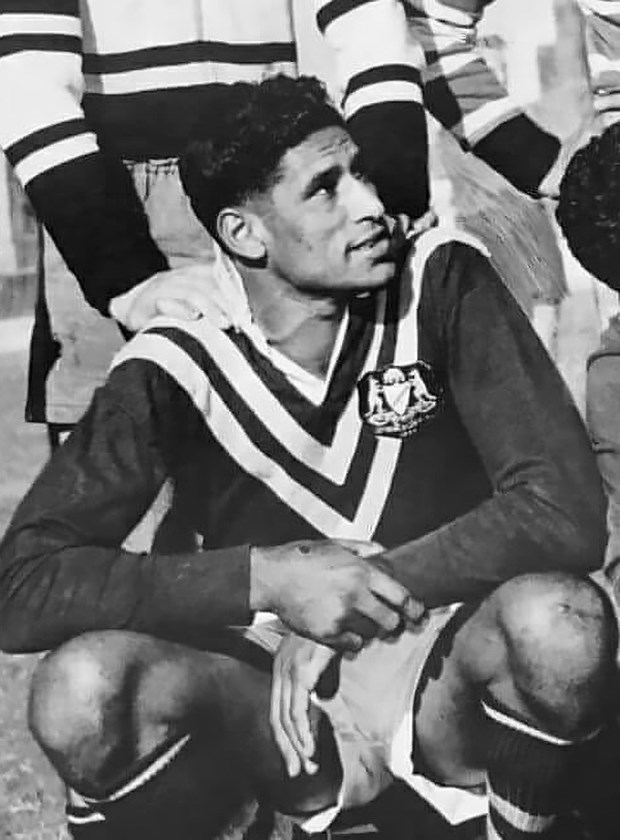
“I couldn’t get a go because of a little bit of racism. It seemed to be there all the time but you can’t change your colour, that’s for sure.”
Off the field, Olive often felt ostracised in public or at official functions with the NSW team.
“When I used to go with the NSW team all over the place, you could just imagine how people would look when you walk into turn-out,” he said.
“The mayor would put on a dinner and you would walk in and you were the only Aboriginal bloke there. They’d look at you and they’d be trying to figure out what’s he doing here. You could feel it.
“It didn’t worry me because I had the attitude that I am just as good as they are. That’s how I got through it.
They’d make you look bad because they would throw the ball down near your feet and you couldn’t grab it or they would throw it behind you
Bruce Olive
“I said ‘you can do it if you want to do it but it is up to you. You have got to be as smart as they are, just accept what you have got and be proud of who you are’. That’s the way I went through life. Those days are gone, thank Christ.”
Old prop's pride in Indigenous legacy
Olive regularly watches NRL matches at home in Dapto, where he has a wall covered in photos from his playing career or of his family, including son Mark, who is a renowned Indigenous chef and appears regularly on television.
He particularly enjoyed last Thursday night’s clash between St George Illawarra and South Sydney and said he was proud of the way the game celebrated Indigenous Round.
“The ones who scored the tries for Souths were all Indigenous so it just goes to show you the pride they had to be playing in the Indigenous Round,” Olive said.
“I knew Cody Walker’s grandfather in Casino years ago and he’s now flying the flag for Indigenous players, along with some of the others. There are a lot of Indigenous players now who are right up the top.”
It’s a huge change from Olive’s playing days and he welcomed the evolution that has seen Indigenous players make up to 25 per cent of the Australian team in recent seasons.
“You had Larry Corowa and all those blokes years ago but there are lot more now,” Olive said.
“There are a lot of Indigenous people playing and they seem to be able to read the game well. They seem to anticipate where the ball is going to go and I always admire that in players. That is the way I used to play.
“People often say to me that you were born too early and that is a fact, I suppose. But I am very proud of what I achieved.”
The views in this article do not necessarily express the opinions of the NRL, ARLC, NRL clubs or state associations.


